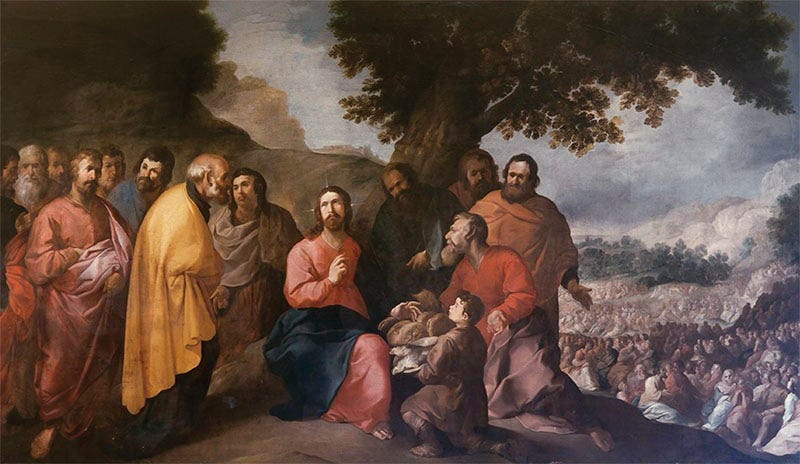Five Barley Loaves and Two Fish
Barley was one of the first domesticated grains and has been a staple crop for thousands of years. It was widely grown in ancient Egypt, Mesopotamia, and the Mediterranean region. It is relatively easy to grow and more tolerant of poor soils and harsh conditions than other grains like wheat.
The affordability and availability of barley compared to other grains made it a practical choice for the poor. In times of economic hardship or food shortages, barley was often a critical resource for survival. In the story of Gideon in the Book of Judges (Judges 7:13), a barley loaf is used in a symbolic dream to represent the common people. The barley loaves in this week’s Gospel John 6: 1-15 symbolizes humility and the idea that God's blessings are available to all, regardless of their social status.
I often wonder about the little boy who carried the barley loaves and fish. He most likely would have come from a humble or less affluent background. This detail underscores the idea that everyone, regardless of their means, can contribute meaningfully. His willingness to offer his small meal, knowing it was insufficient for the crowd, demonstrates a generous spirit and trust. His simple act of giving what little he had became the catalyst for a great miracle.
He gave even his two fish. Fish was a staple food in the region around the Sea of Galilee, where the miracle occurred. Fishing was a major industry, and dried or salted fish were commonly consumed by people of all social classes. He carrying fish suggests that this was part of a typical meal.
The combination of barley loaves and fish reflects a simple, everyday meal for common people, possibly indicating the humble origins of the boy and his family. So often we do not believe we have enough to offer. This week’s Gospel is a testament that even what little we have can be used by Jesus to create profound change.
The modern world and its media make us believe our insignificance compared to the numerous millionaires and billionaires who are presented like colossi who stride among us. Jesus choice of using the five barley loaves and two fish of a small boy signifies that even small contributions can have a significant impact when placed in God's hands.
The story of the five barley loaves and two fish is also a testament to self-sufficiency. In many aspects of life, we are often led to believe that what we possess is insufficient, and that we need external or foreign expertise to meet our needs. However, the miracle demonstrates that what is available, even if seemingly modest or ordinary, can be more than enough when utilized with faith and purpose.
This underscores the idea that faith communities can find sufficiency within themselves, using their own resources and talents to address challenges and needs. The miracle not only showcases divine provision but also encourages a mindset of self-reliance and confidence in the adequacy of local resources and capabilities.
Maybe you are facing a daunting challenge ahead, feeling overwhelmed and inadequate. It's easy to believe that we lack the necessary resources or expertise to overcome the obstacles before us. However, the story of the five barley loaves and two fish reminds us that even the simplest offerings, when coupled with faith and determination, can be transformed into something extraordinary.
Just as the boy's small meal became a means to feed thousands, we too can find strength and solutions within ourselves and our communities. Trust in what you have, and believe that with faith, every challenge can be met and overcome.
NOTICE BOARD
Friends, I am inviting you to join our Benedictine Spirituality Program for Work and Home at the LINK below.




